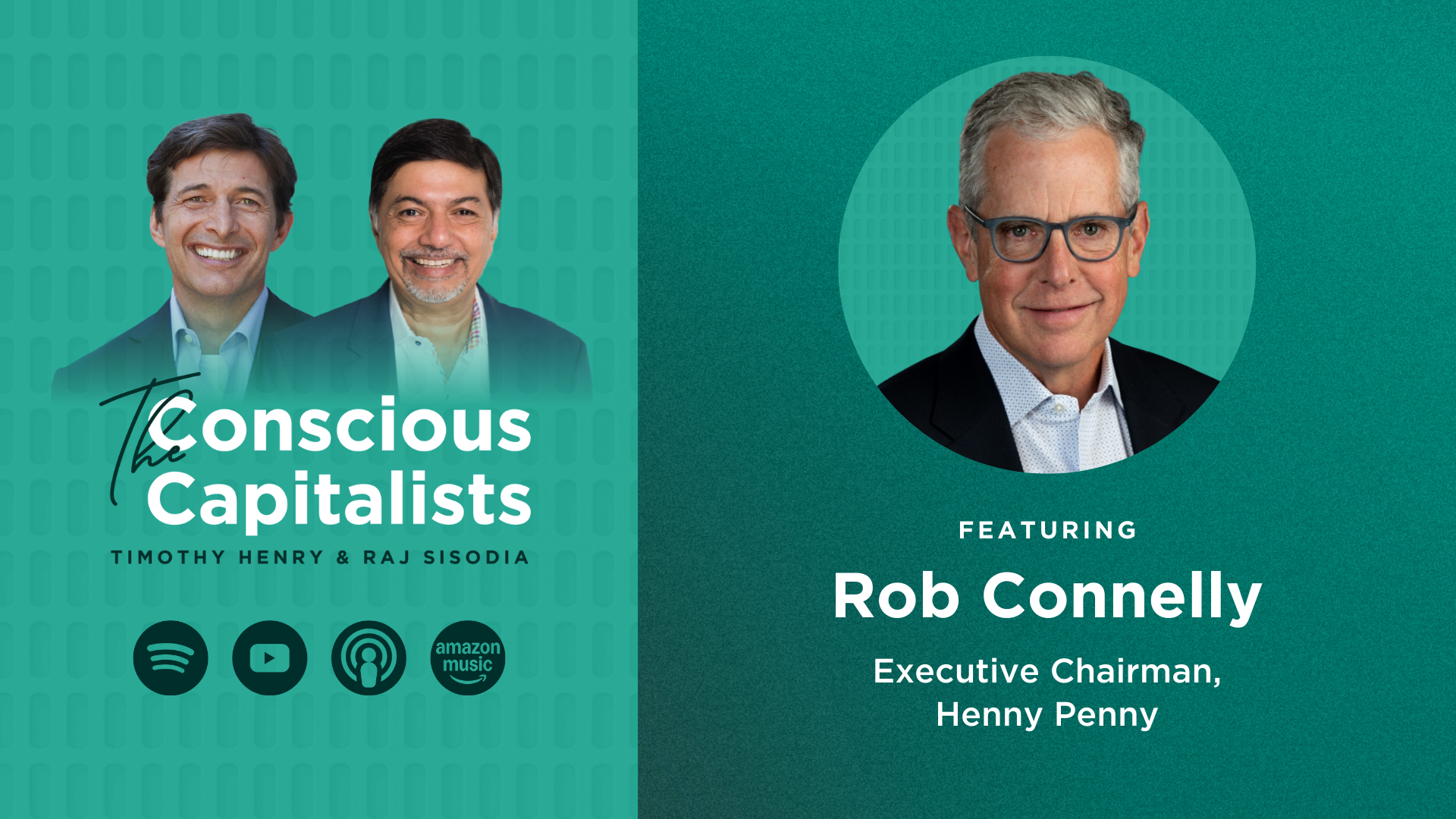In a business climate that often rewards short-term wins, choosing to prioritize your people, and the long-term, can feel like swimming upstream.
But Rob Connelly, Executive Chairman of Henny Penny, believed there was a better way, one that put people at the center and focused on the future.
On a recent episode of The Conscious Capitalists podcast, Rob sat down with Raj Sisodia and Timothy Henry to share how Henny Penny became 100% employee-owned, doubled its business coming out of COVID, and built a culture where care and performance go hand in hand.
If you’re curious about what employee ownership actually looks like in practice, here are a few takeaways from their conversation:
- Ownership is a cultural shift
When Henny Penny transitioned to 100% employee ownership through an ESOP (Employee Stock Ownership Plan), the goal went far beyond wealth sharing. Rob emphasized that ownership transforms how people show up. It creates alignment, accountability, and a shared sense of purpose. Every employee receives shares based on the company’s equity annually, and for some, this has meant hundreds of thousands in retirement savings.
But more importantly, it reshapes culture. Employees know they have real skin in the game, which changes how decisions are made and how responsibility is shared. This shift has helped Henny Penny become a workplace where engagement and ownership go hand in hand.
- People-centered leadership fuels innovation
It might seem counterintuitive, but at Henny Penny, empathy, trust, and well-being aren’t soft skills. They’re the engine of hard innovation.
Employees are supported holistically: from free on-site medical care and mental health services to a 24-hour fitness center and financial coaching. The company also ensures it’s a place where people want to work, starting with not hiring “jerks.” This people-first mindset creates a safe environment for experimentation and problem-solving.
And it’s working. Henny Penny is known globally for its award-winning innovation, driven by deep, decades-long relationships with its customers. Instead of selling products, they focus on solving customer problems, and in doing so, build long-term strategic partnerships.
- Crisis reveals character and builds credibility
When COVID hit and business dropped 80% in April 2020, Rob and his team had a defining choice: cut costs and lay off staff like many others, or stay true to their values.
They chose the latter and paid every employee for full weeks, even when production was only needed for two. By building bridges during the downturn, they retained their team and supply chain, and were positioned to double their business once the market recovered.
This decision wasn’t just ethical. It was strategic. When the industry was still struggling with year-long lead times, Henny Penny was ready to serve. Their long-term focus became a clear competitive advantage.
- Long-term thinking is a competitive edge
Rob compares business strategy to either house flipping or building a cathedral. The first is all about fast wins; the second is about enduring impact.
Henny Penny chose the latter, building a business designed to last 50 or even 100 years. Their ESOP wasn’t a liquidity event. It was an investment in resilience. And that long-term commitment allows them to pivot faster, act boldly in crises, and win customer trust in ways competitors can’t replicate.
In today’s volatile environment, that kind of strategic patience is rare and powerful.
The bigger picture
Henny Penny’s story is a living case study in what happens when conscious leadership meets smart strategy.
Employee ownership. People-first culture. A long-term, value-driven vision.
These aren’t just nice-to-haves. They’re the foundation for resilience, innovation, and sustainable success.
Whether employee ownership is right for your business or not, there are powerful lessons here for any leader looking to build a company that’s both profitable and principled.
🎧 Listen to the full conversation with Rob Connelly → https://go.consciouscapitalism.org/podcast/rob-connelly
